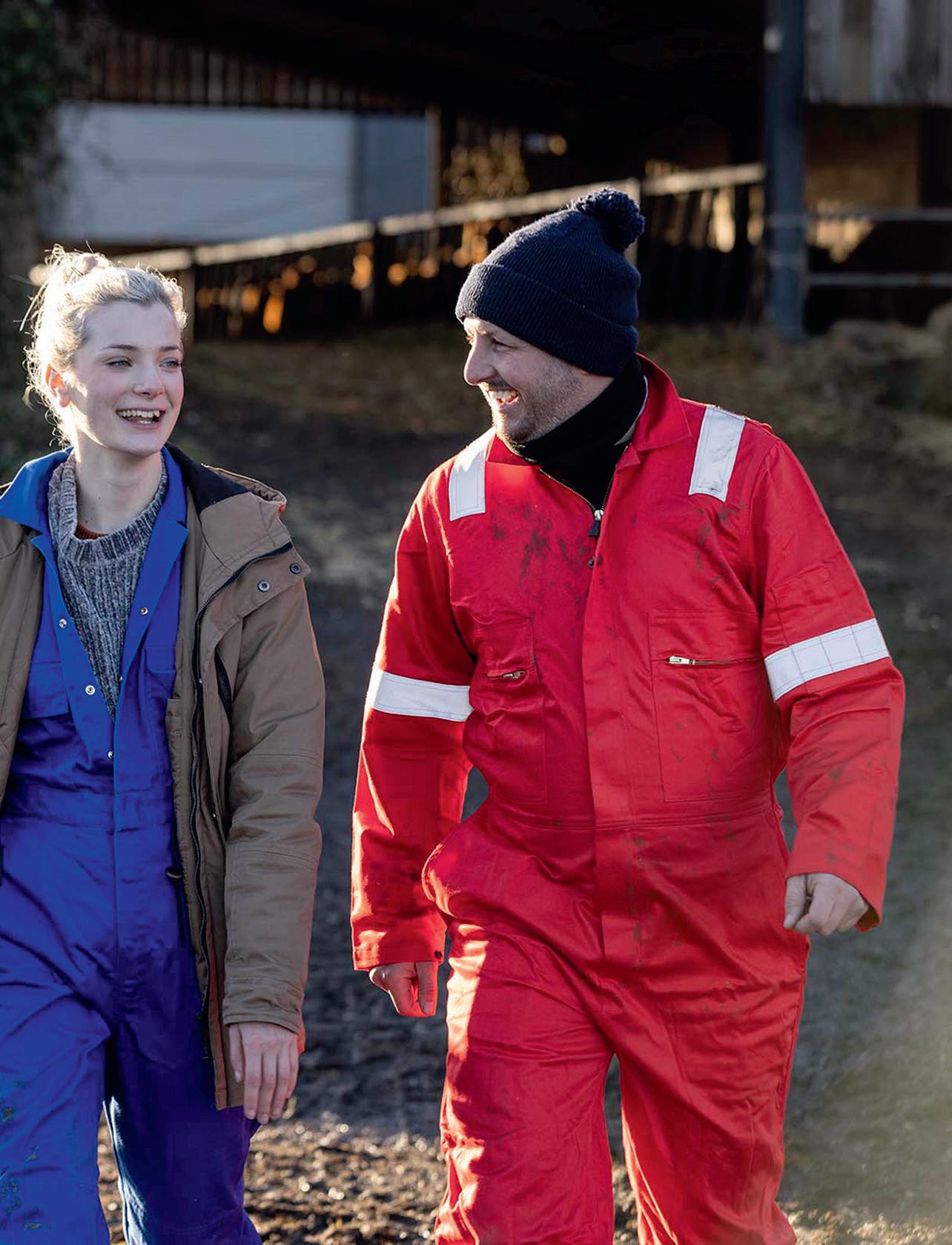
4 minute read
Planning process of recruitment is crucial to finance
Often considered a way of life, not just a job, agriculture is a unique industry in many ways, particularly when it comes to employment.
But with recruitment a constant challenge for many farm businesses and the cost of replacing a general farm worker in the realms of £15,000, how can agriculture better showcase what it has to offer as a workplace and as a career.
At a recent AHDB event, Emma Shaw, senior partner at Real Success, an agricultural people management and recruitment firm, said the hidden costs of replacing a general farm worker are often not acknowledged, but nevertheless are considerable.
With it taking on average 12 weeks to find a replacement farm worker, Ms Shaw highlighted the hidden costs during this period can be found in time spent recruiting, loss of performance, advertising costs and training.
Ms Shaw said: “As a very conservative estimate, it costs a minimum of £15,000 to replace each person in your workforce, which, on average, is the same price as 15 cows or one hectare of land.”
With these costs in mind, getting the right people and keeping them is very important, which is why planning the recruitment process is vital.
“People are probably the things which are invested in the least and there is very little spent on
Top 10 tips for attracting staff
1 Reputation: How you are regarded as an employer within the community and the industry can have a large influence on recruitment success, said Ms Shaw. This included the farm appearance, conditions livestock were kept in, employer professionalism and pay.
provided a ‘bigger pool to fish from’.
harnessing and nurturing humans on-farm.”

She explained that if the average farm worker’s salary was about £25,000 and a worker stayed on the farm for 10 years, it equated to a £250,000 investment.
People are probably the things which are invested in the least and there is very little spent on harnessing and nurturing humans on-farm, said Emma Shaw.
Ms Shaw questioned whether farmers spent the same amount of time making sure their people investments were as carefully considered as their machinery investments.
“When it comes to recruitment you cannot just go for it and hope for the best. It does not work.”
In an attempt to help farmers address the labour shortage and attract more people into the industry, Ms Shaw gave her top 10 tips to focus on when trying to recruit.
4 clean facilities. Ms Shaw said: “Do not put stuff in there you do not want anymore and do not be cheap about it. Make it nice.”
Animals: Potential staff, particularly the younger generation, will judge from the health, welfare and cleanliness of your animals as to how good a potential employer you might be.
2
Online footprint: Ms Shaw explained how unusual it was for businesses in other industries not to have an online footprint and advised farms looking to recruit to have an online presence.
Advertising: When advertising vacancies, view the advert as a door way to inviting people in, said Ms Shaw. She advised using online advertisement agencies as they
3 in staff to make sure they stay. Ms Shaw said: “In farming we are in danger of inflating salaries beyond all reason. Do not knee jerk react and start inflating salaries, but make sure to stay competitive.”
5
Housing: Ms Shaw said accommodation was the ‘jewel in the crown’ for agriculture and is not something which was offered in many other industries. If you can provide a good standard of accommodation which is well maintained, it should be emphasised within the job advertisements.
6 Working conditions: Whether it be the toilet, changing area or staff room, employers need to provide basic,
7 Working hours: Farm businesses are increasingly following normal working weeks, and while they can be trickier to manage, they are easier than constantly recruiting for staff who do not have a work life balance. More farms are starting to offer a five-day week or pay a salary instead of an hourly rate.
8
Salary: Up to the age of 26, a farm worker should be earning £1,000 for every year of their life, as long as they are not doing extreme hours. Ms Shaw advised farmers not to start inflating salaries but look at other ways of attracting and investing
9
First impressions: Ms Shaw advised farmers to go and stand at their farm gate and be very critical about its appearance. She said that first impression of the farm would go a long way with potential employees.
10
Training and development: When recruiting, be honest and real about progression. Ms Shaw suggested even the people who want to stay in the role as they are will not want nothing and there will always be natural curiosity as to what else is on offer.
Online Presence
HAVING an online presence when looking to recruit plays an important part in attracting new staff.
Ms Shaw said that having some form of social media presence would give potential applicants an insight into the farm business. While it does not need to be extensive, she advised farmers to share pictures of themselves and their team, livestock and any interesting day to day activities.
She said: “An online presence can often be the deciding factor for many people when looking to hire a tradesman, for example, and it is increasingly becoming the case when looking for jobs in agriculture too.

“You might not have a need for social media now, but in two years’ time it might help to employ someone when you need it.”
Addressing the concerns of a social media presence in regard to animal rights activists, Ms Shaw said activists were likely to find farms regardless of whether they have a social media presence or not.
“Of course, there are going to be risks to it, but the risk of not doing it and having no online presence far outweighs the potential of having it.”
She said most employers would look up job applicants on social media during the recruitment process, so why should the applicants not be able to do the same.
Ms Shaw said: “If we do not change how we operate online, the labour challenge is only going to get worse.”
Take Control Of Grass Silage Quality



MAGNIVA crop and condition specific inoculants are formulated for the multiple challenges of grass silage.
MAGNIVA grass inoculants contain a unique combination of proven bacteria and enzymes providing complete flexibility on clamp opening times, in addition to:












